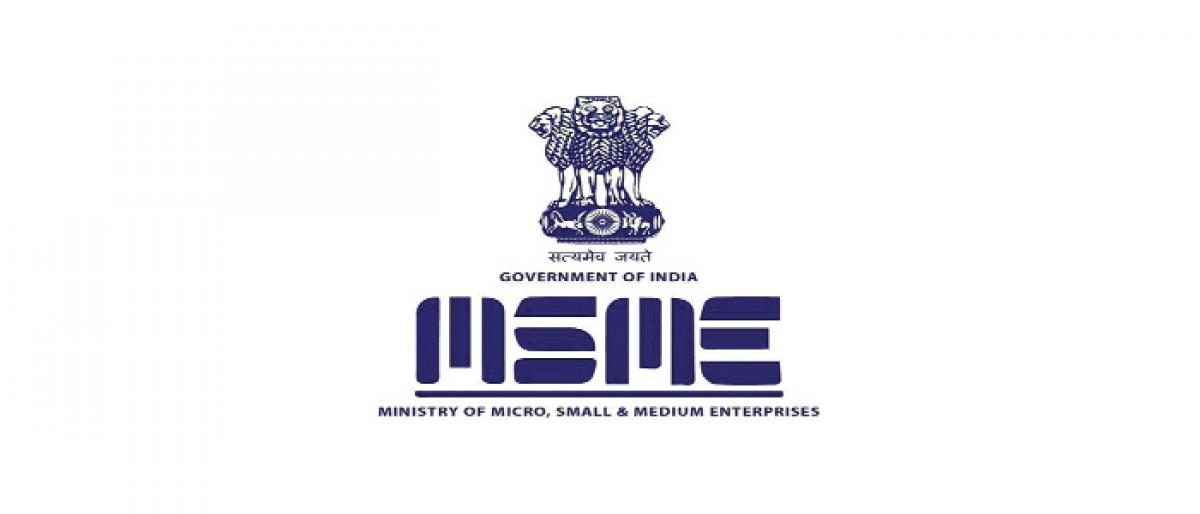Live
- Nizamabad MP Dharmapuri Arvind and Jagtial MLA Dr. Sanjay Kumar Meet CM Revanth Reddy
- Hyderabad CP CV Anand Issues Stern Warning to Bouncers
- MP Laxman Criticizes Police Conduct, Calls for Support for Victims' Families
- Fire Breaks Out in Kachiguda-Chennai Egmore Express, Passengers Evacuated Safely
- CM Revanth Reddy Condemns Attacks on Film Personalities' Homes, Calls for Strict Action
- Victory Venkatesh and Nandamuri Balakrishna to Set Screens on Fire with Unstoppable Season 4
- Over 71.81 crore Ayushman Bharat Health Account numbers generated: Centre
- In special gesture, Kuwait's Prime Minister sees-off PM Modi at airport after conclusion of historic visit
- Veer crowned PGTI Ranking champion, Shaurya wins emerging player honour
- Sr National Badminton: Unseeded Rounak Chauhan, Adarshini Shri reach singles semis
Just In

The notion that a recent move by the Reserve Bank of India (RBI) easing non-performing assets (NPAs) classification norms for such units facing input credit linkages and associated issues will bring a major relief to the MSME (Micro, Small and Medium Sector Enterprises) sector is just aspirational, said an expert.
Hyderabad: The notion that a recent move by the Reserve Bank of India (RBI) easing non-performing assets (NPAs) classification norms for such units facing input credit linkages and associated issues will bring a major relief to the MSME (Micro, Small and Medium Sector Enterprises) sector is just aspirational, said an expert.
Dr B Yerram Raju, Adviser, Telangana Industrial Health Clinic Limited, Telangana, told The Hans India: “Operationally these instructions will take a long time for implementation and neither benefit the enterprise nor the bank in the short-term due to data migration issues. Banks have to put systems in place to migrate the data from the 90-day period to 180-day period and again re-migrate the data vice-versa which is very difficult to implement in the existing technology set-up available for banks.”
Raju went on to add, “Usually it is the officials from the Ministry of Finance who announce these notifications, but banks face several bottlenecks to implement them and RBI is fully aware of the intricacies involved. Even in February, banks and NBFCs were allowed to temporarily classify their exposures to the Goods and Services Tax (GST) registered Micro, Small and Medium Enterprises (MSMEs), having aggregate credit facilities from these lenders up to Rs 25 crore, as per a 180 day past due criterion. However, I am not sure whether all banks have acted on this.”
On June 6, 2018, Financial Services Secretary, Rajiv Kumar tweeted, "In continuation of support and relief to MSMEs, NPA recognition for GST and non-GST MSMEs now at 180 days for dues up to December 31, 2018. Tapering norm from January 1, 2019 to encourage GST registration.”
In February, banks and NBFCs (non-banking financial institutions) were allowed to temporarily classify their exposures to the Goods and Services Tax (GST) registered micro, small and medium enterprises (MSMEs), having aggregate credit facilities from these lenders up to Rs 25 crore, as per a 180 day past due criterion.
"This was done with a view to ease the transition of MSMEs to the formalised sector post their registration under the GST," RBI said in the monetary policy review. "Having regard to the input credit linkages and associated issues, it has now been decided to temporarily allow banks and NBFCs to classify their exposure, as per the 180 days past due criterion, to all MSMEs with aggregate credit facilities up to the above limit, including those not registered under GST," it said.
Accordingly, eligible MSME accounts, which were standard as on August 31, 2017, shall continue to be classified as standard by banks and NBFCs "if the payments due as on September 1, 2017 and falling due thereafter up to December 31, 2018 were/are paid not later than 180 days from their original due date", it added.
It further said that in view of the benefits from increasing formalisation of the economy for financial stability, the 180 days past due criterion -- in respect of dues payable by GST registered MSMEs from January 1, 2019 onwards -- should be aligned to the extant norm of 90 day past due in a phased manner. For entities that do not get registered under GST by December 31, 2018, the asset classification in respect of dues payable from January 1, 2019 onwards shall immediately revert to the 90-day norm, it said.
Stating that nearly Rs 50,800 crore MSME industry lending has been done by the banking & financial services industry in 2017-18, Raju said that the industry lending is witnessing a growth of 6 per cent since March 2018. Even then, only 7 per cent of the industry requirement is being met though MSME NPAs are far less compared to the corporates. The NBFC which has been growing at a CAGR of 13-16 per cent in the last couple of years can register a CAGR of 20 per cent in the next three years.

© 2024 Hyderabad Media House Limited/The Hans India. All rights reserved. Powered by hocalwire.com







